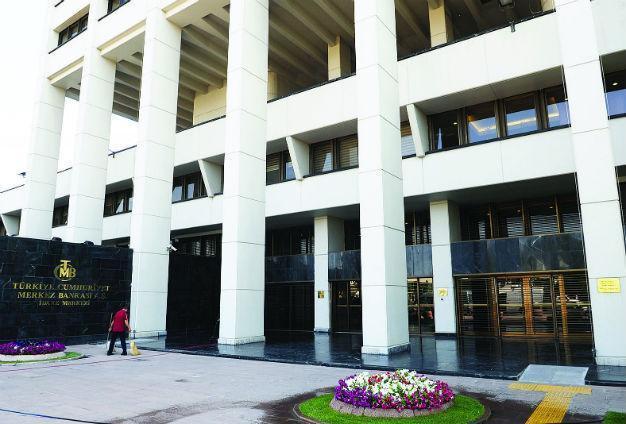Investors eye new economy administration, rate decision in Turkey
ANKARA/ISTANBUL
 Investors are playing a waiting game to see whether Deputy Prime Minister Mehmet Şimşek, who is seen as an anchor of investor confidence, will be retained in a new Turkish cabinet and what decision the Central Bank might take on interest rates in its upcoming meeting.
Investors are playing a waiting game to see whether Deputy Prime Minister Mehmet Şimşek, who is seen as an anchor of investor confidence, will be retained in a new Turkish cabinet and what decision the Central Bank might take on interest rates in its upcoming meeting. Binali Yıldırım, a close ally of President Recep Tayyip Erdoğan and former transport minister, was named on May 22 as the new prime minister.
On May 23, Yıldırım said the new cabinet list would be prepared quickly and presented to Erdoğan.
After the November 2015 elections, Şimşek’s inclusion in the Turkish cabinet was perceived as a crucial anchor for market players and investors due to his strong emphasis on a detailed reform agenda at a time when emerging markets, including Turkey, had witnessed steep fluctuations ahead of a series of expected rate hike by the U.S. Federal Reserve (Fed).
But Şimşek’s omission from the new cabinet could act as a harbinger of a diversion from prudence, according to analysts.
“We note that Deputy PM Şimşek is an important figure for international investors and his replacement could be seen as a diversion from prudent policies,” Reuters quoted Yarkın Cebeci of JPMorgan Chase in Istanbul as saying on May 23.
“One key risk to monitor is any weakening of checks and balances, given that very few people will likely be left in the government who could offer alternative viewpoints, and this could make Turkey more accident-prone. Any replacement of Şimşek could potentially aggravate this problem,” he added.
A top economic adviser of Erdoğan claimed on May 23 that there would be no change in the economic perspective after the new cabinet is established.
“Economies or systems are not built on people, but on main dynamics,” Yiğit Bulut told state broadcaster TRT, adding that it would not be of significance who would replace whom as long as the system was robust.
“Turkey has been a new paradigm, a national economy model based on production for a long time. This paradigm will be realized with all of its elements,” said Bulut, adding that one of the main constituents of Turkey would be the defense industry.
Central Bank rate decision
The Central Bank’s rate-setting meeting on May 24 will also be closely watched. The bank is expected to cut the upper band of the interest rate corridor further after a lower inflation figure for April and repeated calls for rate cuts from the government.
However, the latest inflation print of 6.6 percent in April still remains well above the bank’s own target of 5 percent.
In a Reuters survey, 11 out of 18 economists expected a cut of 50 basis points in the upper band while four forecast a cut of 25 basis points and three expected no change.
Erdoğan and his close circle have repeatedly railed against the high domestic cost of borrowing, equating high interest rates with “treason.”
The Central Bank left its benchmark repo rate unchanged at 7.5 percent and instead cut the upper band of its interest rate corridor by an expected 50 basis points, to 10 percent in April. The bank cut the same rate by 25 points in March for the first time in 13 months.
Another top adviser of Erdoğan, Bülent Gedikli, said the Central Bank should make more rate cuts on May 18.
Gedikli said he forecast a more proactive tendency from the Turkish Central Bank in the upcoming period.
“The Central Bank should make more and faster rate cuts, rather than 25 percentage points of cuts,” he said.
“Why does President Erdoğan say that the rates must be cut? He says so because he sees that the global economy is running into deflation. Another reason behind this is that he wants to say ‘trust in your country,’” added Gedikli.
















